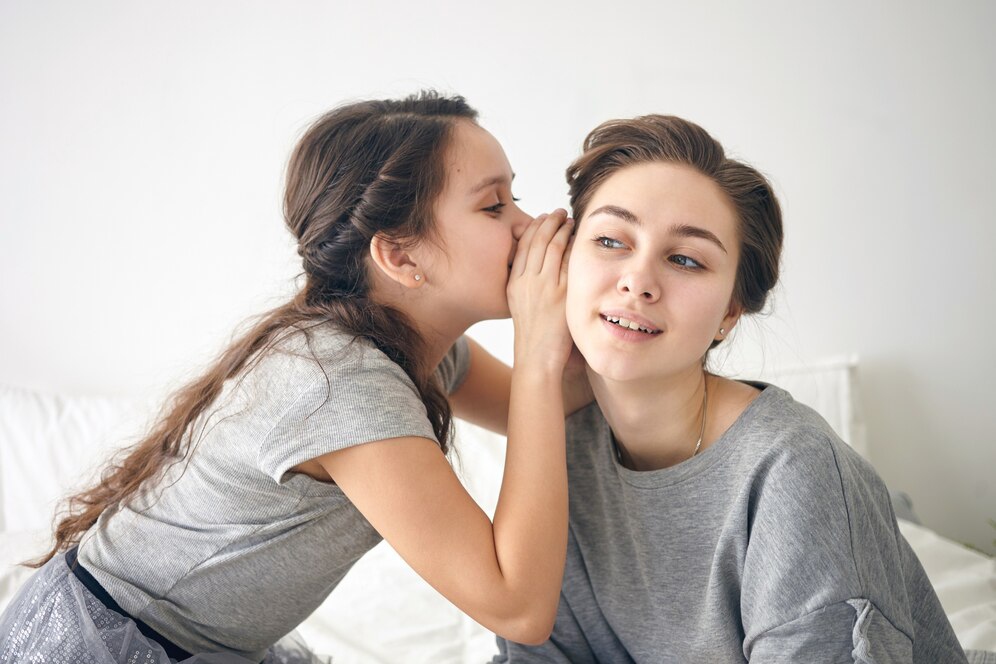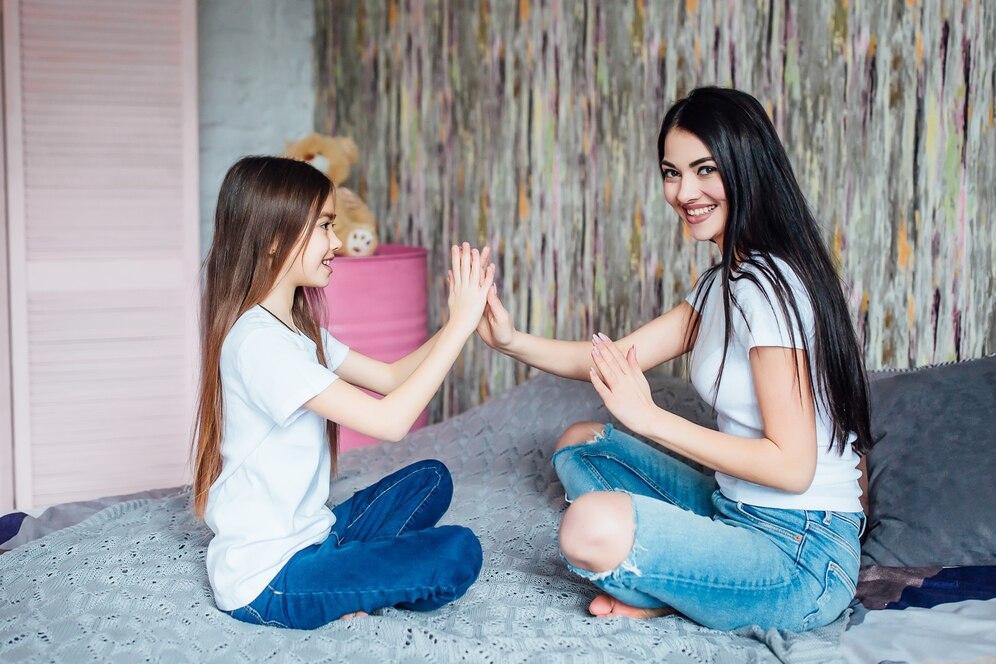
Talking About Periods: A Guide for Parents
The Conversation You Don’t Want to Miss
“Mum, what’s a period?” If those five words have ever caught you off guard, you’re not alone. Whether it comes during a shopping trip, a TV ad, or while folding laundry, that question signals an important moment.
Explaining menstruation to your child might feel awkward at first, especially if you didn’t receive much guidance yourself growing up. But today’s kids deserve better openness, honesty, and empowerment.
This guide will help you:
- Start the puberty period talk early and with confidence
- Break down menstruation in a way kids understand
- Prepare for the first period discussion with care and clarity
- Build a foundation of body literacy and self-respect
No matter where your child is on their journey, you’re in the right place to make this conversation one they’ll remember, for all the right reasons.
Why It’s Important to Talk About Periods Early
Silence Breeds Confusion and Shame
In many households, periods are still treated as taboo. Children learn to whisper about them, hide sanitary pads, or feel embarrassed about their bodies.
But when you initiate age-appropriate conversations, you give your child:
- Knowledge they can trust
- Confidence in their body
- Permission to ask questions
According to the Royal College of Paediatrics and Child Health, many girls get their first period between the ages of 9 and 13 — some even earlier. Waiting too long can mean they experience their first bleed without any idea of what’s happening.
When to Start the Period Talk
A Good Rule of Thumb: Start by Age 8
Even if your child hasn’t shown physical signs of puberty,the first period can come earlier than expected.
Early discussions mean:
- No fear or confusion when it begins
- They know what products to use
- They know who to talk to if they need help
How to Prepare for the Period Conversation

1. Know Your Facts
Brush up on:
- What happens during the menstrual cycle
- How long do periods usually last
- Normal vs. concerning symptoms
- Product options (pads, period pants, tampons)
2. Choose a Comfortable Time
Good moments include:
- Shopping for toiletries
- Watching a movie scene involving puberty
- When you’re both relaxed, not rushed or stressed
3. Use Clear, Body-Positive Language
Avoid euphemisms like “Aunt Flo” or “monthly visitor”. Say:
- “Menstruation” or “period”
- “Vagina”, “uterus”, “blood”, “cramps” — using correct terms reduces confusion and builds trust.
What to Say: Breaking It Down by Age
Ages 6–8: Introducing the Concept
Keep it simple and positive.
“As girls grow up, their bodies change, and one of those changes is something called a period. It means the body is getting ready to have babies one day — but that’s for much later!”
Use illustrated books like “It’s Not the Stork” to support your talk.
Ages 9–11: Getting More Detailed
This is the ideal time to go deeper.
“A period happens when the uterus gets rid of its lining. It comes out of the vagina as blood. It’s a sign your body is healthy and growing.”
Cover:
- What pads and liners are
- How to track a cycle
- What to expect emotionally and physically
Common Period Questions (and How to Answer Them)

“Will it hurt?”
“You might feel cramps like a tummy ache, but there are ways to feel better — warm packs, rest, and even medicine if needed.”
“How much blood comes out?”
“It might look like a lot, but it’s usually about 3 to 6 tablespoons over several days.”
“Can I still play sports?”
“Absolutely. Periods shouldn’t stop you from doing what you love. Some people even find exercise helps with cramps.”
“Do I have to use a tampon?”
“No. You can choose what feels right. Pads or period pants are great for starting out.”
Preparing for the First Period
Create a Period Kit Together
Include:
- A few pads
- Pantyliners
- Spare underwear
- Wipes
- A zip pouch to carry in her school bag
Teach Her How to Use Products
Show how to:
- Stick a pad to your underwear
- Dispose of products properly
- Track periods on a calendar or app
Consider role-playing so she feels ready.
How to Be Emotionally Supportive
Reassure Her She’s Normal
Remind her:
- Everyone goes through this
- Periods are not dirty or shameful
- There’s no “right age” to start
Watch for Emotional Swings
Hormonal changes can bring:
- Irritability
- Moodiness
- Fatigue
Help her name her feelings and learn coping tools like journaling, rest, or gentle exercise.
What Dads (and Other Caregivers) Need to Know
Men and non-menstruating caregivers often feel unsure about their role, but your presence matters.
Tips for Dads:
- Use the correct terms without hesitation
- Support product shopping with confidence
- Don’t make jokes — even “harmless” ones can hurt
- Be ready to listen without trying to fix
Showing support without awkwardness builds trust.
Creating a Period-Positive Home

1. Keep Products Visible
Store pads, liners, and other supplies in shared spaces — like the bathroom — not hidden away.
2. Talk Openly Around Siblings
Teach boys that periods are natural too:
- “Periods are part of how bodies work.”
- “It’s something all girls and women go through.”
This builds empathy and reduces teasing.
3. Celebrate the First Period
Consider:
- A “period celebration box” with treats and essentials
- A simple note of pride and encouragement
- Asking how she wants to acknowledge it — quietly or openly
The goal isn’t to make it a big deal, but a normal, respected milestone.
Real-Life Stories From Parents
“We Laughed Through It”
“When my daughter got her first period at a theme park, we had nothing on us. I wrapped a T-shirt around her underwear and bought pads at the gift shop. We turned it into a silly memory — and now she’s the most confident 13-year-old I know.”
“The Dad Who Stepped Up”
“My partner took our daughter shopping for her first pads when I was away. He didn’t flinch. He just said, ‘Let’s get what you need — and ice cream.’ It meant everything to her.”
When to Seek Medical Advice
While most periods are normal, you should contact your GP if your child:
- Gets her period before age 8
- Has extremely heavy bleeding (soaking through a pad every 1–2 hours)
- Experiences severe pain that disrupts daily life
- Misses periods for several months after they’ve started
Always follow your instincts and don’t hesitate to ask for help.
Conclusion: This Conversation Is a Gift
Explaining menstruation might feel daunting at first, but it’s one of the most valuable talks you can have with your child. It’s not just about body changes — it’s about:
- Building trust
- Creating body literacy
- Empowering her to care for herself
Remember:
- Start early and keep the puberty conversation going
- Be honest, calm, and factual
- Celebrate this natural milestone with pride and empathy
Your voice — steady, kind, and informed — will become her inner compass as she steps into womanhood.
Ready to Talk Periods?
Have you had the period talk yet? How did it go? Share your experience or favourite tips in the comments. Subscribe for expert-led puberty parenting content. Know a parent who’s unsure how to begin? Send this their way — it could change everything.


